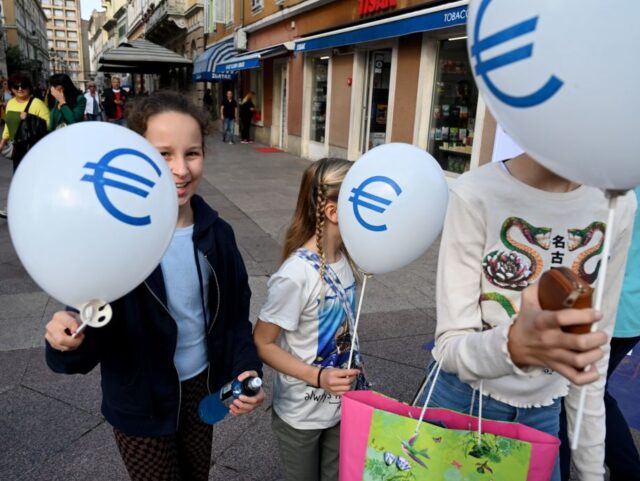Croatia is to be the latest European Union member to abandon its financial independence in exchange for integration within the EU money system, as it switches the national kuna for Brussels’ euro on New Year’s Day.
The Republic of Croatia, which became an independent country after the Croatian War of Independence in 1991, is to give up some of that hard-won independence this weekend, as it exchanges financial self-determination for a place among the club of Eurozone nations.
Croatia will be the 20th euro currency state, and Sunday will be the euro’s 21st birthday.
Prices have been displayed in both currencies since September to get locals used to the new money, reports POLITICO, and old kunas will still be valid currency for the next two weeks — although shopkeepers will have to give change in euros.
As POLITICO notes:
It’s not a great moment to be joining the club: the euro slid to parity against the U.S. dollar in July and remains weak despite regaining some ground in recent months. The European Central Bank is on a crusade against inflation, which is causing the economy to slow. A winter recession is now the base-case scenario.
Yet their report insists the Croatian government remains optimistic, with their finance minister claiming borrowing costs in the future would be even higher for Croatia were they not joining up.
A report on the transition by Euractiv expresses misgivings, however, particularly over price rises, which were supposed to be controlled but allegedly have not been.
For a country as small as Croatia, with a population of just four million, there are risks inherent in surrendering control over the national currency to adopt one arguably run for the benefit of Europe’s largest economy, Germany.
This barely-concealed single purpose for the single currency has led to “intra-regional financial imbalances” — in other words, smaller economies running at different speeds and trying to achieve different goals to Germany — like Spain, Portugal, Greece, and Ireland — have suffered.
'Thank God We're Out' – Farage Responds to EU Parliament Corruption Arrests https://t.co/bhFBCdb4xo
— Breitbart London (@BreitbartLondon) December 11, 2022

COMMENTS
Please let us know if you're having issues with commenting.